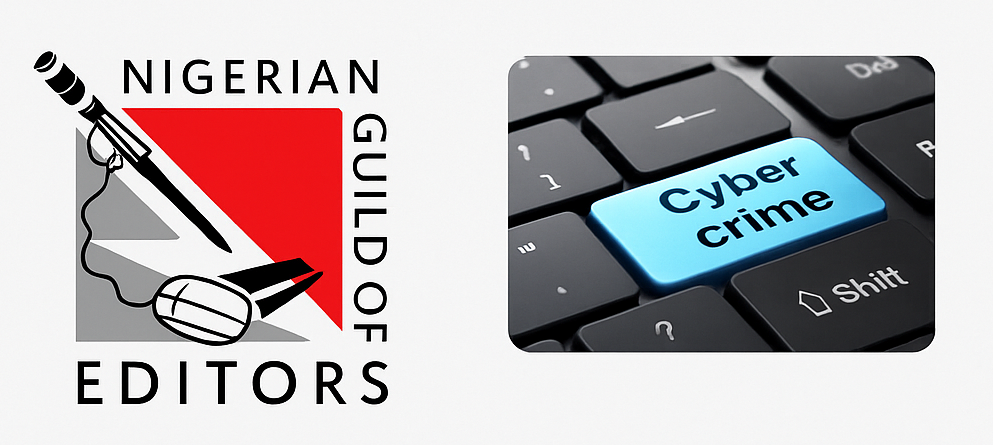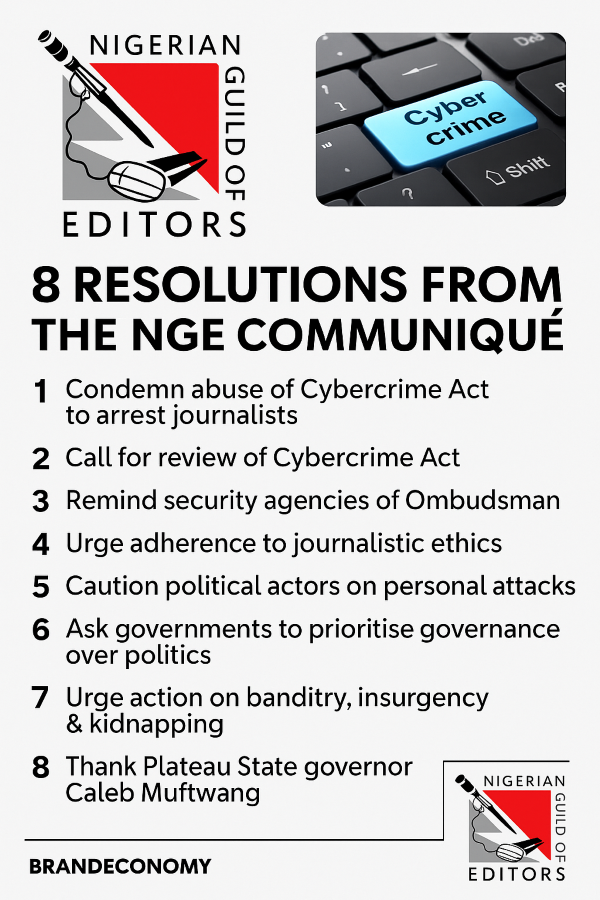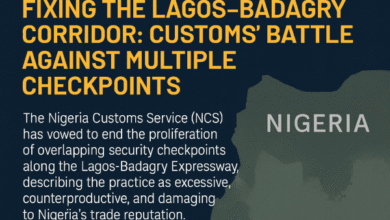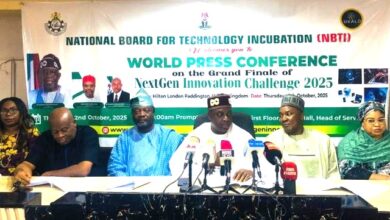Nigerian Guild of Editors Condemns Cybercrime Act Abuse, Urges FG to Tackle Insecurity

Jos, Nigeria – September 28, 2025
The Nigerian Guild of Editors (NGE), Nigeria’s foremost professional body of editors and newsroom leaders, has issued a strong warning against the misuse of the Cybercrime (Prohibition, Prevention, etc.) Act by law enforcement agencies, describing it as a dangerous threat to press freedom, democracy, and the rule of law.
The communiqué was released at the end of the NGE Standing Committee meeting held in Jos, Plateau State, and signed by NGE President, Eze Anaba, and General Secretary, Onuoha Ukeh. The Guild’s resolutions touched on media freedom, political conduct, governance priorities, and security challenges, with a clear call for reforms and accountability.
Cybercrime Act Abuse: Press Freedom at Risk
The Guild expressed deep concern over the persistent harassment, intimidation, and illegal detention of journalists under the guise of the Cybercrime Act.
- The Act, originally designed to combat financial fraud, identity theft, and cyberattacks, has been weaponized against journalists, turning legitimate reporting into grounds for arrest.
- The NGE declared that it would “no longer tolerate” such abuses and vowed to use all legal means to defend press freedom.
The Guild further reminded security agencies that the Nigerian Press Organisation’s Ombudsman mechanism exists to address ethical breaches in journalism. Editors warned that turning security agencies into tools of intimidation undermines democracy and accountability.
Political Conduct and the Culture of Distraction
The NGE strongly criticised both government and opposition politicians for their growing culture of personal attacks, name-calling, and inflammatory rhetoric, instead of focusing on governance.
- Such careless talk, the editors warned, “heats up the polity, incites citizens, and risks a breach of national peace and security.”
- Editors urged political actors to focus on policy-driven debates and governance delivery rather than positioning for future elections.
Governance Priorities: The Social Contract Reminder
The Guild emphasised that governance at federal, state, and local levels must remain focused on citizens’ socio-economic wellbeing and security, rather than endless electioneering.
- Leaders were reminded of their constitutional social contract to provide education, healthcare, security, and infrastructure within their current terms.
- Talking about 2027 elections while citizens face daily insecurity and inflation, the editors argued, is both “insensitive and irresponsible.”
National Security: Inaction Threatens Stability
The NGE urged the Federal Government and security agencies to step up their fight against banditry, insurgency, kidnapping, and herder-farmer clashes.
- With food insecurity and displacement on the rise, the Guild warned that unchecked violence threatens both economic stability and investor confidence.
- Editors called for proactive intelligence, better-equipped security forces, and stronger inter-agency coordination to protect lives and restore confidence.
Internal Responsibility: Call to Journalists
While defending press freedom, the NGE also challenged its members to uphold professional integrity and ethical standards.
- Editors were reminded to avoid blackmail, defamation, or unverified publications that damage the Guild’s credibility.
- Adherence to the NPO Code of Ethics for Nigerian Journalists remains non-negotiable.
Sectoral Implications and Stakeholder Analysis
Media Sector
- The communiqué is a shot in the arm for press unions and journalists under siege, affirming that the media remains a critical pillar of democracy.
- Newsrooms are expected to leverage the Guild’s position to push for a review of the Cybercrime Act and secure legislative backing for journalist protections.
Political Sector
- Politicians are being put on notice: public discourse must shift from personal vendettas to policy solutions.
- For the opposition, this is a chance to reclaim credibility by focusing on alternative governance ideas. For ruling actors, it is a call to prove delivery capacity.
Economic and Investor Implications
- Investor confidence is directly tied to rule of law, press freedom, and political stability.
- The NGE’s stance on insecurity and governance provides international observers and investors with a clearer picture: Nigeria’s private sector remains vulnerable to policy uncertainty and insecurity-driven costs unless urgent reforms are pursued.
BRANDECONOMY Takeaways
- Press Freedom = Investor Confidence
Abuse of the Cybercrime Act creates reputational risks for Nigeria globally. Governments and regulators must safeguard media freedoms if they want foreign direct investment (FDI) to flow. - Governance Before Elections
Citizens and businesses want policies that address inflation, power supply, insecurity, and food production—not endless electioneering rhetoric. - Insecurity Threatens Economic Stability
Every uncontained security challenge raises the cost of doing business, disrupts agriculture, and limits Nigeria’s $1 trillion economy ambition.
Ethical Journalism Builds Trust
The media itself must hold the moral high ground by sticking to ethics, avoiding sensationalism, and prioritising fact-based reporting.












